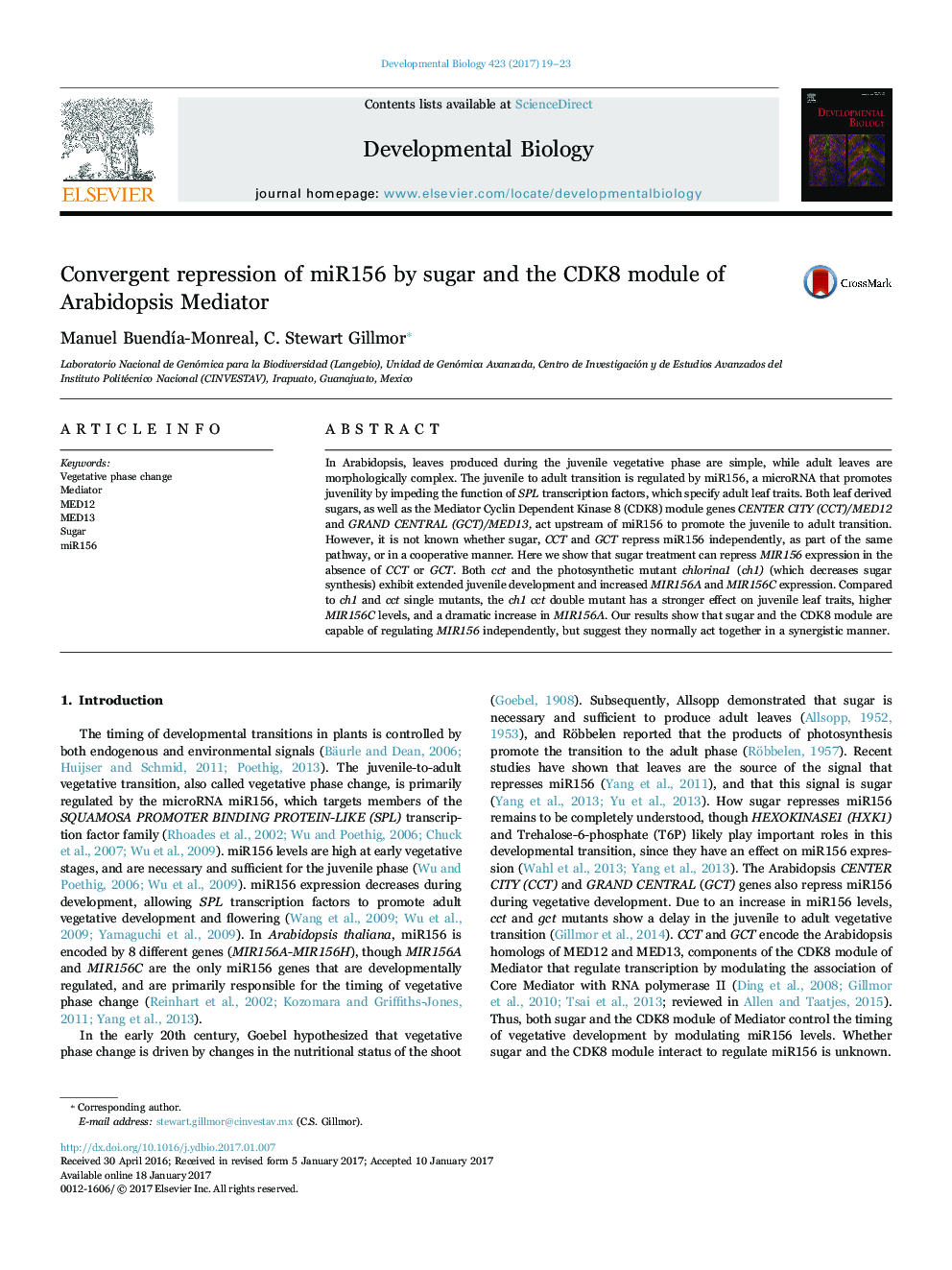| Article ID | Journal | Published Year | Pages | File Type |
|---|---|---|---|---|
| 5531872 | Developmental Biology | 2017 | 5 Pages |
â¢Sugar represses miR156, and promotes vegetative phase change.â¢The Mediator CDK8 module gene CCT/MED12 also represses miR156, and promotes vegetative phase change.â¢Sugar and CCT/MED12 act together to promote vegetative phase change, and synergistically to repress miR156.
In Arabidopsis, leaves produced during the juvenile vegetative phase are simple, while adult leaves are morphologically complex. The juvenile to adult transition is regulated by miR156, a microRNA that promotes juvenility by impeding the function of SPL transcription factors, which specify adult leaf traits. Both leaf derived sugars, as well as the Mediator Cyclin Dependent Kinase 8 (CDK8) module genes CENTER CITY (CCT)/MED12 and GRAND CENTRAL (GCT)/MED13, act upstream of miR156 to promote the juvenile to adult transition. However, it is not known whether sugar, CCT and GCT repress miR156 independently, as part of the same pathway, or in a cooperative manner. Here we show that sugar treatment can repress MIR156 expression in the absence of CCT or GCT. Both cct and the photosynthetic mutant chlorina1 (ch1) (which decreases sugar synthesis) exhibit extended juvenile development and increased MIR156A and MIR156C expression. Compared to ch1 and cct single mutants, the ch1 cct double mutant has a stronger effect on juvenile leaf traits, higher MIR156C levels, and a dramatic increase in MIR156A. Our results show that sugar and the CDK8 module are capable of regulating MIR156 independently, but suggest they normally act together in a synergistic manner.
